What happened at ESO 2? The diagnostic evaluation highlights "two unusually large decreases" in science and Spanish
- At the Diagnostic Assessment Results Party, which measures the level of EAE students in the mathematics, science, Basque, Spanish and English competences, the evaluators have expressed the need to reflect "prudently" on the discalming in science and Spanish experienced by students aged 13-14 years.
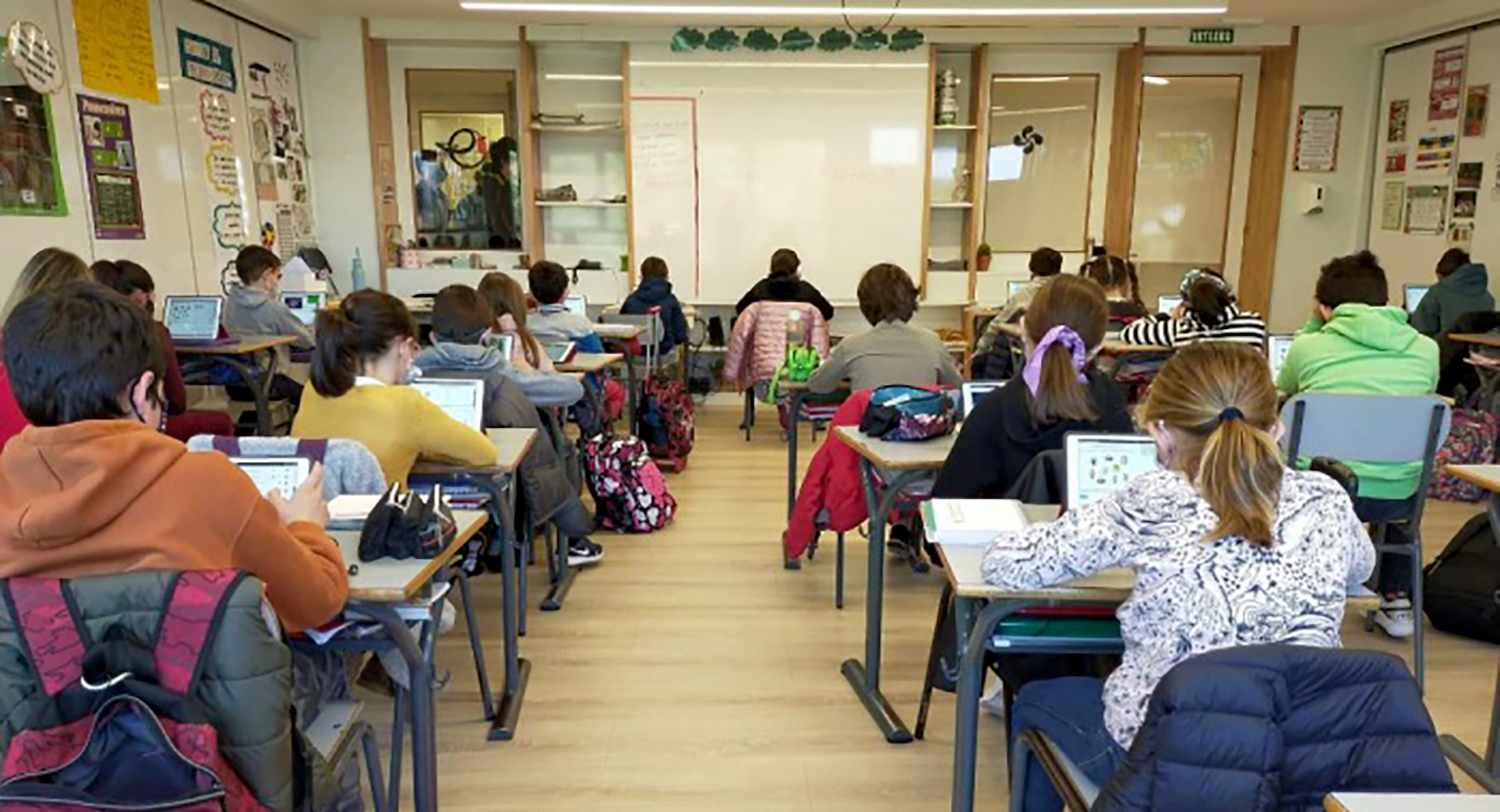
Under the mandate of the Basque Government, the ISEI is responsible for the evaluation of students and the latest data has been (briefly) reported by the Minister of Education, Begoña Pedrosa. In 2023, students in intermediate stages (4th grade of primary education and 2nd grade of compulsory secondary education) were evaluated; and in 2024, students in final stages (6th grade and 4th grade) were evaluated.
If we go to the ISEI report, we can see a lot of fluctuations depending on the stage and the competition, and the ISEI concludes that these changes are frequent, but before the results are highlighted, let’s go to two results that stand out, in which the level is a big drop (the “abrupt drop”, says the ISEI): In the evaluation carried out at ESO 2 in 2023, the competence for linguistic communication in Spanish fell by an average of 16.9 points and that of science by 17 points. This conclusion is due to the large increase in the number of students with the lowest level in the established levels of performance.
ISEI recommends a “complex reflection” to be carried out prudently in order to accommodate these two large declines. On the one hand, he emphasizes that these descents are not related to other nearby areas of the same edition. That is, the decline of Spanish has not been reflected in Basque and English, and that of science has not been reflected in mathematics. On the other hand, the evaluators wanted to highlight the fact that opposing trends have been recorded in two consecutive promotions over two consecutive years. That is, in 2024, the students of ESO 4 (most of them born a year before the students who had the results of 2023) experienced an increase in Spanish and remained stable in science with respect to the trend of previous years.
The responsible evaluators highlight the fact that two successive promotions have received conflicting trends over two consecutive years.
As a matter of fact, there is no clear explanation for such a decline. The ISEI says that it is advisable to monitor these data in the future, considering two references: that this year’s PISA will measure the scientific competence among a part of these students who participated in the 2023 evaluation, and that this year a diagnostic evaluation will be carried out again for those who are currently doing ESO 2.
More generally, the diagnostic evaluation report does provide an indication of the factors that influence educational outcomes. It states that the COVID19 pandemic had and continues to have a strong impact on educational processes; that the socio-economic and cultural index of families is closely linked to educational outcomes; and that the origin of students is also affected.
LH2, LH6, ESO2 and ESO4: results by competition
In the improvements in primary education, the English language had the greatest improvement in the evaluation of FP2 (4 points above) and in FP6, the science (6 points). In the falls, the Spanish has had the greatest decrease in both the 2nd and 4th levels (about 4 points). In the rest of the Primary competitions, the results have hardly changed compared to previous editions.
In Compulsory Secondary Education, the greatest improvements have been in ESO4: 5 points in Spanish, 3 in English, 1 in mathematics and has remained stable in science. In ESO2, in addition to the previously mentioned discalibres, students dropped 1 point in English and another 1 point in mathematics.
Outside of school hours, the Department of Education announces reinforcements to strengthen reading comprehension in FP3 and mathematics in FP4
Reading and mathematical reinforcements in FP
On the other hand, along with the diagnostic evaluation, the Department of Education has also presented an educational strategy that aims to improve the results of 2024-2028. Among other things, he has announced out-of-school reinforcements in Primary: reinforcements to strengthen reading comprehension in FP3 and mathematics in FP4. It also announced ways to identify early learners with learning difficulties in Early Childhood Education, the Socio-Emotional Learning Deepening Program for 12-16 year olds, new diversity management strategies at ESO, and more resources to serve highly intelligent learners. It also highlights the fact that primary and secondary school teachers are receiving training in science didactics.
The time has come for us to enrol in schools in the Basque Country for the 2025-26 academic year, and in many homes the youngest of the household will take a new step soon, in September, which is schooling. Proud of the Basque Public School The members of Topagune are firmly... [+]
Since the adoption of the new Education Law for Álava, Bizkaia and Gipuzkoa, we are hearing/reading again and again that education will be free from now on. We have listened to different actors, including the Department of Education, and in the interviews we offer to the media,... [+]
There are many ways to gain power; not all are beautiful. There are those who want to divide the power and the responsibility that it entails with it, who seek authority. Others have a lot of respect for him and the fact that each step is so measured makes them unable to make a... [+]
On February 3rd, the time has begun to pre-enroll our children and young people in schools, and as every year we would like to remind you why we do not think it is a good idea to enroll them in religion. Last year we finished the article saying that “many of you will be... [+]
From the Association of Parents of the Instituto Arratia Small Tram we want to encourage reflection on the use of screens in the learning community.
Lately there is a lot of concern about the impact of screens on children and adolescents. This responsibility extends from... [+]
There are concepts that appear everywhere during certain periods, which also become mantras. They appear to us in a positive and necessary way, without too much debate and without thinking about them. It seems to me that one of these mantras is internationalization, which has... [+]










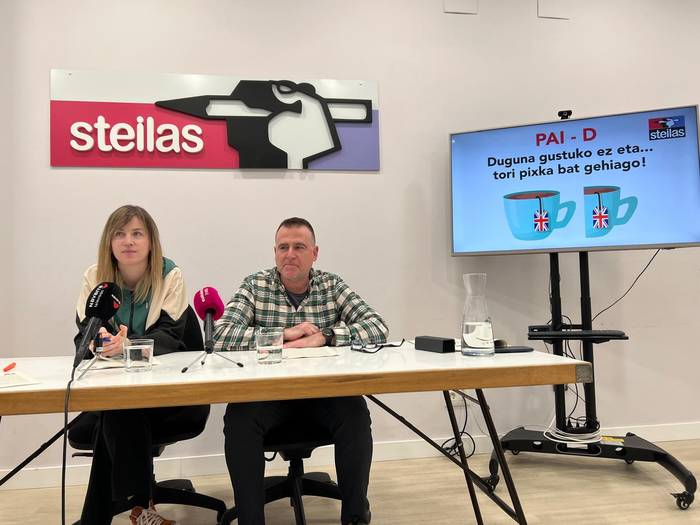
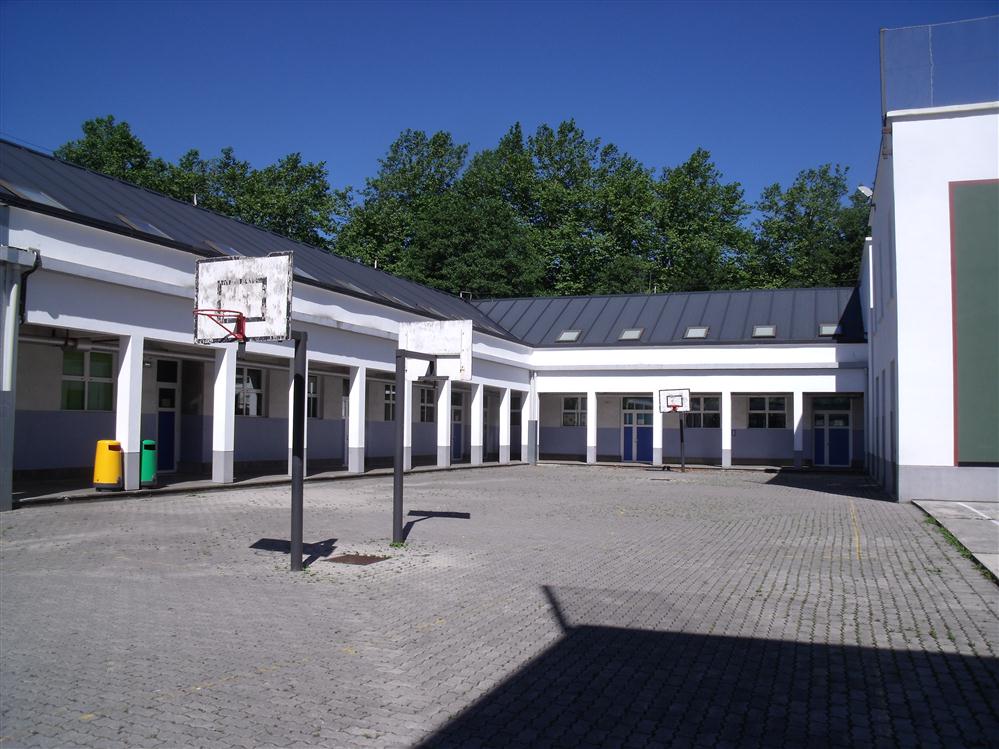
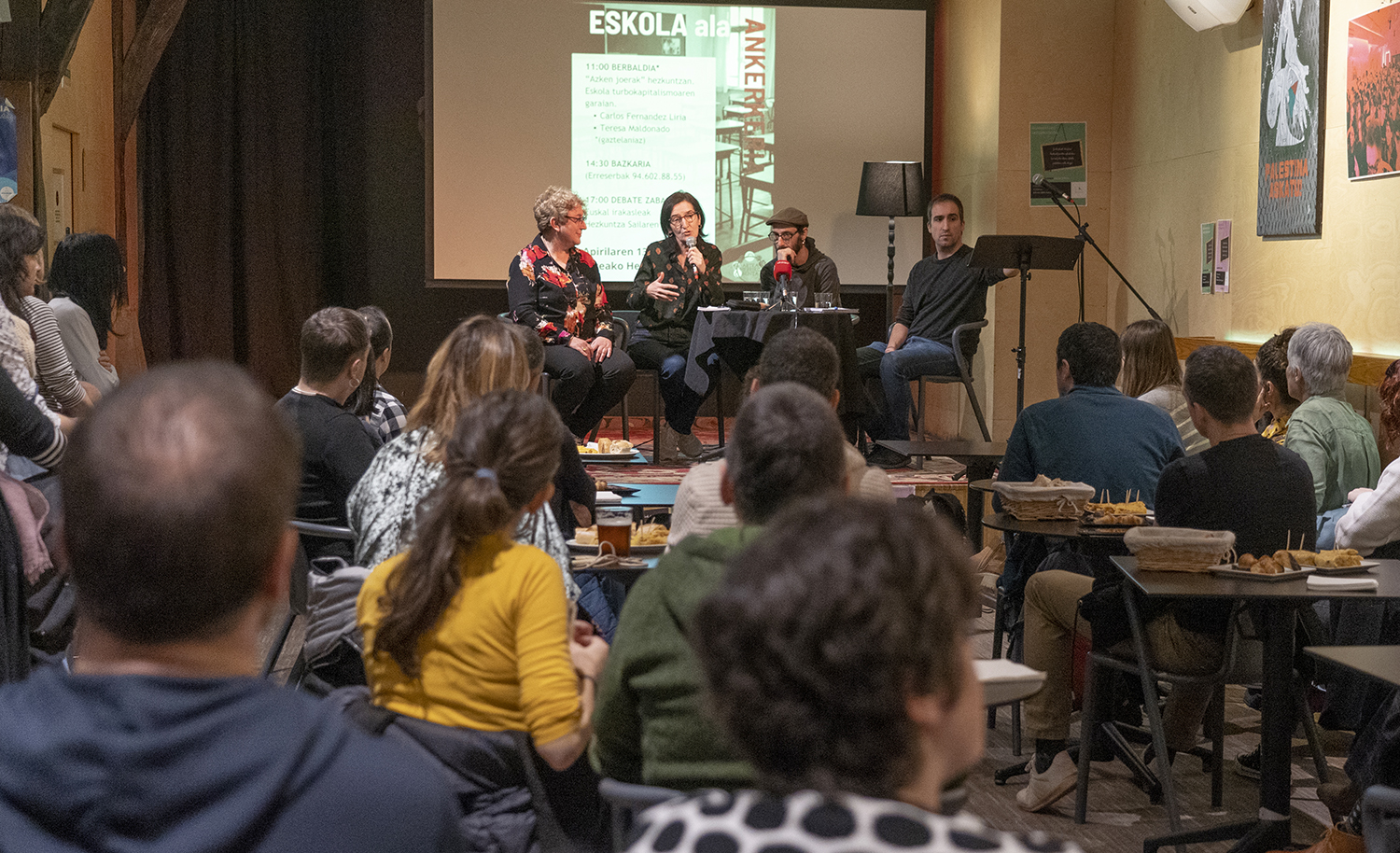
_2.jpg)
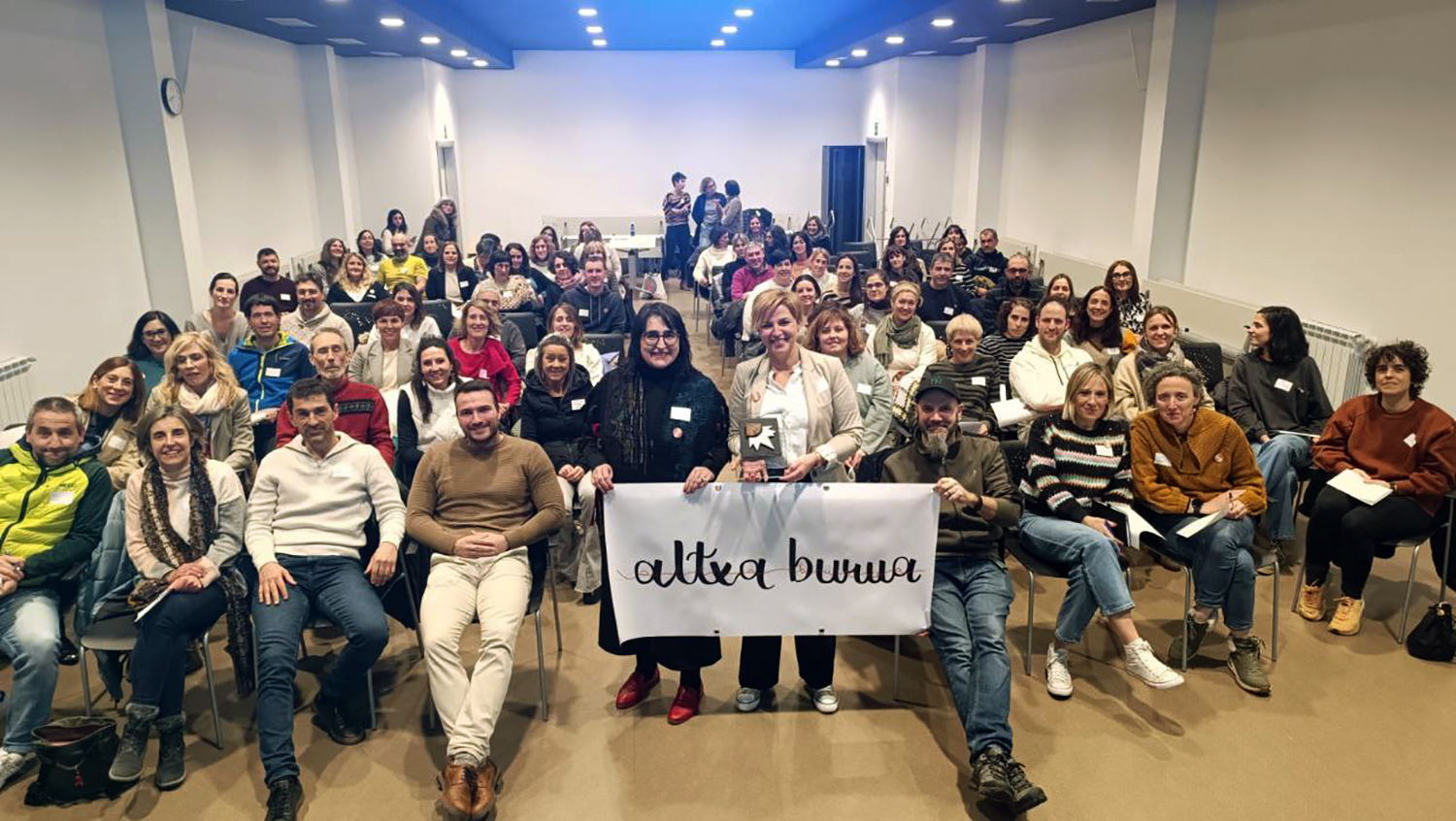
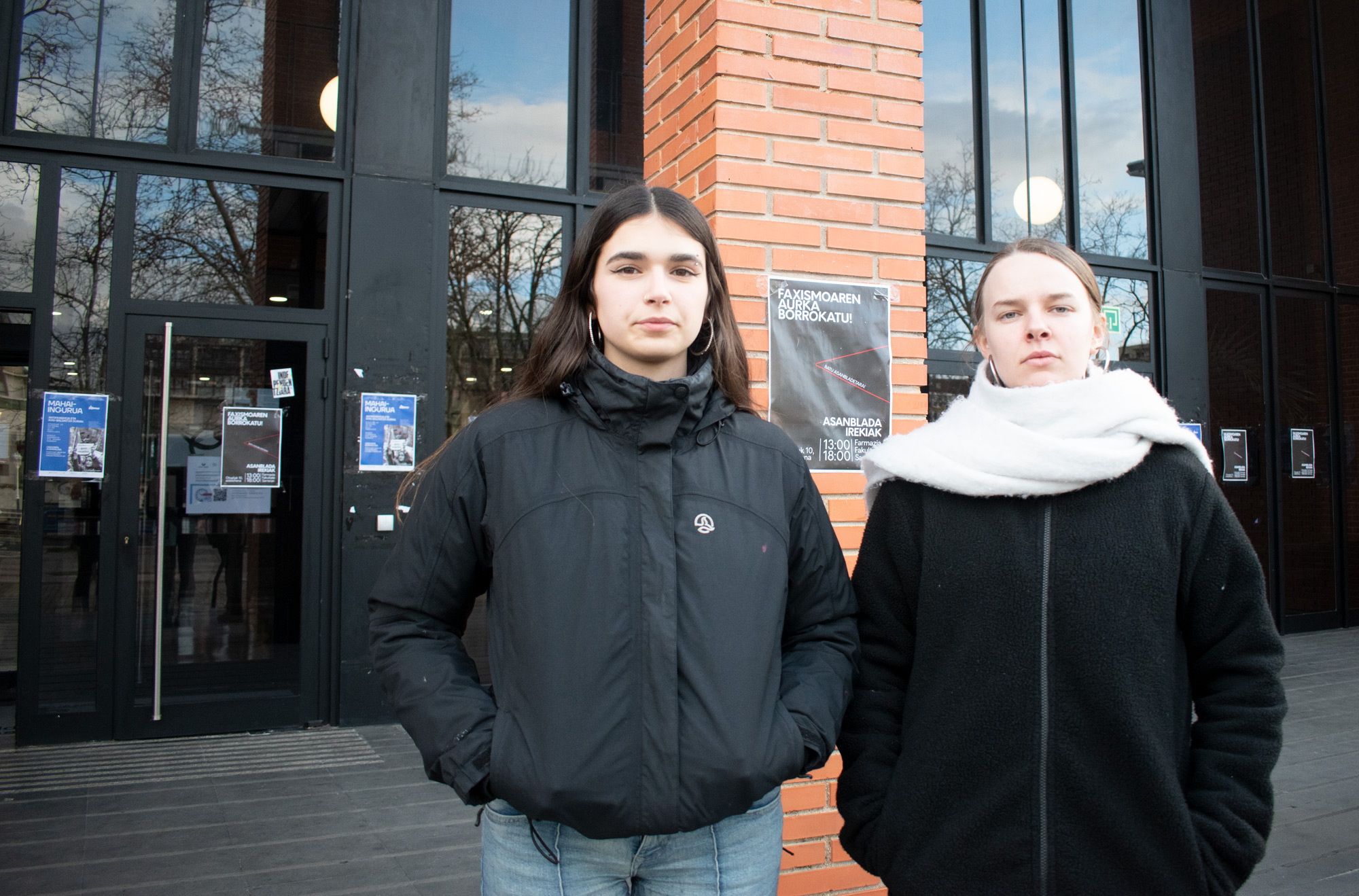
_2.jpg)

_2.jpg)